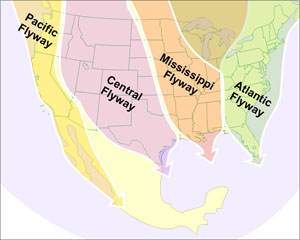Help Protect NC Flocks From High Path Avian Influenza
go.ncsu.edu/readext?845118
en Español / em Português
El inglés es el idioma de control de esta página. En la medida en que haya algún conflicto entre la traducción al inglés y la traducción, el inglés prevalece.
Al hacer clic en el enlace de traducción se activa un servicio de traducción gratuito para convertir la página al español. Al igual que con cualquier traducción por Internet, la conversión no es sensible al contexto y puede que no traduzca el texto en su significado original. NC State Extension no garantiza la exactitud del texto traducido. Por favor, tenga en cuenta que algunas aplicaciones y/o servicios pueden no funcionar como se espera cuando se traducen.
Português
Inglês é o idioma de controle desta página. Na medida que haja algum conflito entre o texto original em Inglês e a tradução, o Inglês prevalece.
Ao clicar no link de tradução, um serviço gratuito de tradução será ativado para converter a página para o Português. Como em qualquer tradução pela internet, a conversão não é sensivel ao contexto e pode não ocorrer a tradução para o significado orginal. O serviço de Extensão da Carolina do Norte (NC State Extension) não garante a exatidão do texto traduzido. Por favor, observe que algumas funções ou serviços podem não funcionar como esperado após a tradução.
English
English is the controlling language of this page. To the extent there is any conflict between the English text and the translation, English controls.
Clicking on the translation link activates a free translation service to convert the page to Spanish. As with any Internet translation, the conversion is not context-sensitive and may not translate the text to its original meaning. NC State Extension does not guarantee the accuracy of the translated text. Please note that some applications and/or services may not function as expected when translated.
Collapse ▲Calling all youth flock owners to help in protecting all North Carolina flocks!
Highly Pathogenic Avian Influenza (known as High Path AI or HPAI) is a deadly disease for chickens and turkeys which is caused by a virus that can be easily spread.
 Migratory birds moving over the Atlantic flyway are able to carry the virus without showing symptoms. North Carolina is part of the Atlantic flyway. As of Jan. 27, 2022, 53 migratory birds (hunter-harvested) tested positive for a serious and fatal type of HPAI (Eurasian H5 HPAI).
Migratory birds moving over the Atlantic flyway are able to carry the virus without showing symptoms. North Carolina is part of the Atlantic flyway. As of Jan. 27, 2022, 53 migratory birds (hunter-harvested) tested positive for a serious and fatal type of HPAI (Eurasian H5 HPAI).
Do you have a backyard flock? Backyard flocks have the potential to come in close contact with migratory birds that could possibly carry HPAI. This is what you can do to help protect your flock during this critical time in the next 30 days (the time frame migratory birds are most likely flying over NC):
Being ‘COOPED UP’ is a good thing! Keep your flock ENCLOSED in a pen without access to wild birds (avoid uncovered free ranging of birds for next 30 days).
Know the signs of High Path Avian Influenza:
- Know the Lows: Low energy, appetite, activity, & egg production
- Oopsy Eggs: soft shelled or misshapen
- Unwell Swells: Swollen head, eyelids, combs, & wattles
- Nasty Noses: Runny nares (aka nostrils of birds) & difficulty breathing
- Tripping, Tremors, & Twisting: head & neck twist, birds stumble, circle, & fall
- Unpopular Purple & Green Goo: Purple wattles, combs, legs, & Green diarrhea
See the signs in your flock? Make a call asap to your:
- Local veterinarian
- NC State Veterinary Office at 919-707-3250
- or NC Veterinary Diagnostic Laboratory System at 919-733-3986
Practice B.E.S.T. BIOSECURITY:
- B – Bird Boots – a pair of shoes or boots that go only to your coop or are cleaned before leaving your coop or farm
- E – Eliminate Exposure- to outside birds
- S – Super Soap – clean clothes, vehicles, hands, etc. that have contact with other flocks or migratory birds
- T- Tell – see symptoms, make sure a veterinarian knows
Dr. Mike Martin, our state veterinarian, is asking for each of us to do our part to help prevent the spread of HPAI and protect all of our flocks. It is time to practice your B.E.S.T. Biosecurity! Read more about these latest outbreaks or find out more about Avian Influenza.
*Image courtesy of Artic National Wildlife Refuge


